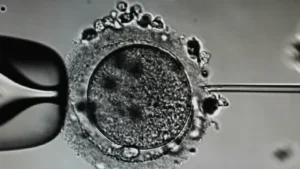

First Dedicated FERTILITY & MALE Health Center with Highest Qualified Staff and Success Rates in Pakistan
Intracytoplasmic Sperm Injection (ICSI) has become one of the most reliable methods for overcoming male and female infertility challenges. The latest advancements in ICSI treatment now integrate precision-based laboratory techniques, improved culture media, and genetic screening to enhance success rates. In Pakistan, these innovations are increasingly accessible in major urban centers, ensuring that couples have options that were once limited to international clinics. Couples often also compare ICSI with intrauterine insemination, considering the iui cost in Pakistan when making decisions.
This content is developed to provide authoritative, experience-based guidance on the current state of ICSI treatment in Pakistan, addressing what patients need to know before making decisions. Information is structured to prioritize accuracy, supported by practical insights, and aligned with standards for educational medical writing.
ICSI treatment today goes beyond traditional fertilization techniques. Laboratories use micromanipulation systems to inject a single healthy sperm directly into the egg, reducing the uncertainty of natural fertilization. The addition of artificial intelligence-based sperm selection tools, advanced embryo monitoring systems, and time-lapse imaging provides higher reliability than earlier versions of the procedure. Patients often ask for transparent estimates, such as the iui cost in pakistani rupees, to weigh affordability before proceeding.
| Advancement | Description | Practical Impact |
| Time-lapse embryo monitoring | Continuous imaging of embryos during incubation | Early detection of developmental abnormalities |
| Artificial intelligence sperm selection | Algorithms analyze sperm motility and morphology | Higher chances of selecting genetically viable sperm |
| Advanced culture media | Improved nutrient formulations for embryos | Increased embryo survival and implantation rates |
| Genetic screening (PGD/PGS) | Detects chromosomal abnormalities before transfer | Reduces miscarriage risk and improves healthy births |
| Non-invasive embryo assessment | Uses metabolomic analysis instead of biopsy | Safer evaluation with no damage to embryos |
Clinics using AI-based sperm analysis often report fewer failed cycles, especially in cases of severe male infertility.
Pakistan has witnessed steady growth in assisted reproductive technology over the last decade. According to the South Asian Journal of Human Reproduction (2024), ICSI is now the most frequently chosen fertility treatment in the country, accounting for over 60% of assisted reproduction procedures. Major urban hubs such as Lahore, Karachi, and Islamabad provide advanced facilities equipped with embryology labs, genetic testing, and fertility preservation services.
Lahore has become a focal point for advanced treatments, with many patients traveling there to seek a fertility center in Lahore that offers genetic testing and advanced embryology services. Karachi provides international-standard laboratories with extensive coverage. Islamabad, though smaller in scale, is quickly integrating comprehensive fertility services. Secondary cities such as Faisalabad and Multan are beginning to adopt ICSI, though many couples from these regions still travel to major cities to access technologies like AI-driven sperm analysis or preimplantation genetic testing.

Couples from secondary cities often travel to Lahore or Karachi for advanced treatments like genetic screening, as these are not yet consistently available nationwide.
Before proceeding with ICSI, couples should carefully assess multiple factors:
Bonus tip: Couples with a history of failed IVF cycles often benefit from a combined approach of hysteroscopy and ICSI, as it allows for uterine cavity evaluation before embryo transfer.
Sawa Perfect provides complementary services that strengthen the outcome of ICSI treatment:
Patients also receive counseling to compare procedures, including the typical iui cost, before choosing a treatment path.
Couples often research related topics such as the best infertility center in pakistan, alongside local cost factors, before committing.
What is the success rate of ICSI in Pakistan compared to global standards?
Success rates in Pakistan now range between 35–45%, aligning closely with global averages of 40–50% due to the adoption of AI monitoring and advanced culture media.
Does ICSI increase the risk of genetic abnormalities?
Current studies confirm no significant increase in genetic abnormalities compared to conventional IVF, especially when PGD/PGS screening is applied.
Can ICSI be repeated if the first cycle fails?
Yes. Repeated cycles often incorporate learnings from previous attempts, including modified stimulation protocols or advanced sperm selection.
How does age impact ICSI outcomes?
Female age remains the strongest determinant, with higher success below 35 years and reduced implantation rates after 40.
Is ICSI suitable for azoospermia patients?
Yes, ICSI can be performed using surgically retrieved sperm, offering solutions for obstructive and non-obstructive azoospermia cases.
ICSI treatment in Pakistan has advanced rapidly, integrating global innovations such as time-lapse imaging, AI-driven sperm selection, and non-invasive embryo evaluation. Availability is no longer confined to a few major cities, although advanced genetic services remain more accessible in Lahore, Karachi, and Islamabad. Couples considering treatment should assess laboratory standards, clinical expertise, and supportive procedures before making a decision. Patients looking for the best infertility center in pakistan should prioritize accreditation, multidisciplinary care, and transparent outcome reporting.
©2026 All Rights Reserved | SAWA Perfect Fertility Clinic Lahore, Pakistan
Unlock the potential of male fertility with our state-of-the-art Advanced Semenology Lab. Just as IVF provides a controlled environment for optimal fertilization, our lab offers comprehensive analysis and assessment of sperm health. We meticulously evaluate sperm parameters, providing crucial insights to guide fertility treatments and maximize the chances of successful conception.
Navigate the complexities of ambiguous genitalia with compassionate and expert care. We offer thorough diagnostic testing, genetic counseling, and personalized treatment plans, ensuring sensitive and informed guidance towards a clear understanding and tailored management.
Navigate the sensitive complexities of sexual health for both men and women with compassionate and expert care. We offer thorough diagnostic evaluations, discreet counseling, and personalized treatment plans, ensuring sensitive and informed guidance towards improved intimacy and overall well-being.
Hysteroscopy is a minimally invasive procedure that allows detailed visualization and treatment of uterine conditions. Using a thin, lighted telescope, we can diagnose and address issues like polyps, fibroids, and adhesions, promoting optimal uterine health and improving fertility outcomes.
Comprehensive testing with an experienced clinic can reveal the underlying causes of male fertility issues. With the right diagnosis and tailored treatments, we can help restore your fertility health and open the doors to a new chapter of family planning.
IUI, also known as artificial insemination, places healthy sperm directly into the uterus, bringing it closer to the egg and enhancing the chance of conception. This gentle, effective method aligns with your natural cycle for optimal timing.
PGD helps families plan for a balanced and healthy future. This advanced genetic testing allows you to screen embryos for specific traits or genetic conditions, empowering you to make informed choices before pregnancy.
Experience the benefits of modern surgical techniques! Laparoscopic surgery is minimally invasive, leading to faster recovery times, less pain, and fewer scars compared to traditional open surgery—helping you heal quickly and comfortably.
ICSI is a specialized fertility treatment designed to maximize the chances of fertilization, particularly when used alongside IVF. This advanced technique injects a single healthy sperm directly into the egg, boosting the success rate for couples on their path to parenthood.
IVF has long been a trusted choice for those pursuing fertility solutions. In this popular procedure, eggs and sperm meet in a controlled environment to create an embryo, which is then carefully transferred to the uterus to achieve pregnancy.